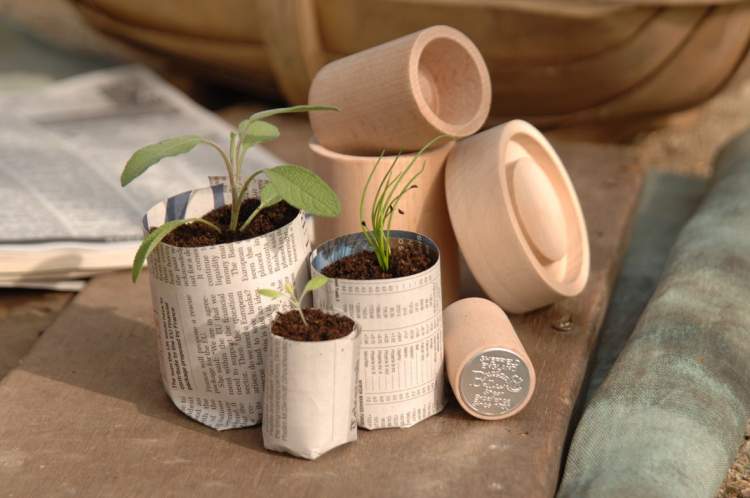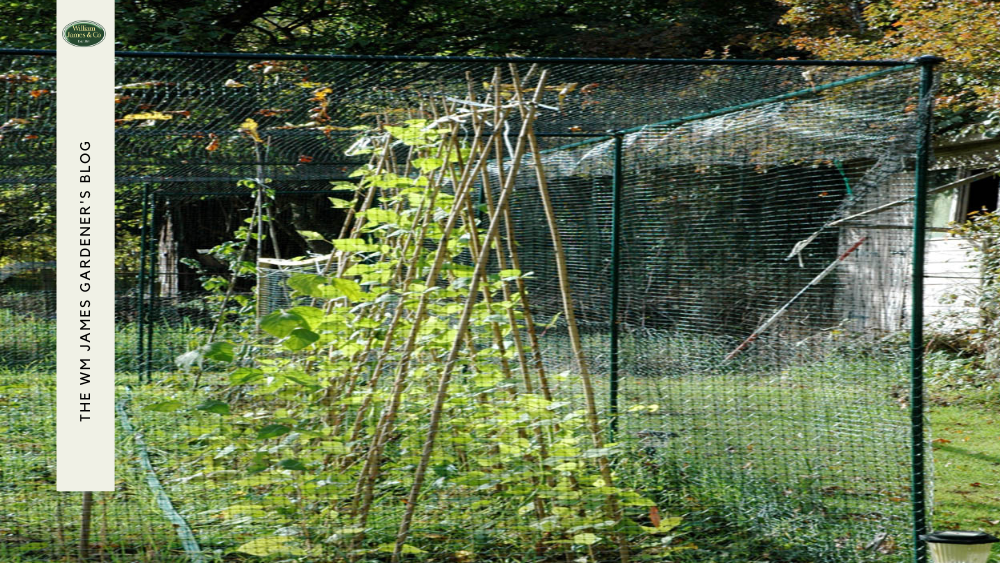We use cookies to make your experience better. To comply with the new e-Privacy directive, we need to ask for your consent to set the cookies. Learn more.
What To Do After Seeds Sprout - Growing Your Own Vegetables
- Admin
- WM James Gardening Blog
- 9 Jun 2021
-
61views

It’s easy to find vegetable garden inspiration online, but it can sometimes be difficult knowing how to take care of your vegetable plants, especially in the important early stages. Once your seeds sprout, you need to guide your fledgling plants on the next stage of their journey.
If you’re unsure about what to do now that your vegetable seeds have germinated, here’s a practical guide on how to take care of seedlings and grow them into fully-fledged veggie plants.
- After sprouting move seedlings into their own pots
- Replenish nutrients and soil when moving to new pots
- Regularly check seedlings for damage, pest activity and disease
- Protect seedlings and young plants with netting and mesh
Re-pot Seedlings To Give Them More Space
Once your seedlings sprout, they’ll need more space to grow and flourish. That means that you’ll need to re-pot them a couple of times before you plant them outside. Putting your growing vegetable plants into new pots is an excellent opportunity to replenish and refresh soil for optimum growth.
When growing small plants, it’s surprising how many additional pots you will need. To ensure that you always have a supply of eco-friendly pots to hand, keep an eco pot maker and some newspaper in your shed. These quick to make, bio-degradable pots are perfect as a fun DIY project with the kids and avid gardeners who regularly use plastic posts.
These solutions, alongside a selection of plant and potting trays, will allow you to give your growing vegetable seedlings more space in which to grow and thrive.
Protect Your Growing Plants From Pests
As your seeds grow to plants, they become more tempting to wildlife, including insects and birds. As such, you need to keep them safe from hungry garden pests.
To start with, you may be growing your seeds indoors, and so they do not require much protection. However, once you move them outside, protecting against pests is essential if you want to give your seeds the best chance of growing.
There are many ways to keep wildlife from snacking on your vegetable seedlings and impairing their growth. One of the easiest ways to keep your veggies safe is to invest in garden netting. Netting will keep birds and larger insects away from your vegetables. You could also consider using a fruit cage to keep your vegetable seedlings safe.
These solutions are ideal for any gardener that doesn’t have a suitable greenhouse to store their growing vegetables and keep them safe from becoming snacks for hungry wildlife.
Regularly Check & Keep Taking Care Of Seedlings
Once your seeds have sprouted, you need to make sure that you continue to take care of your seedlings. Water them regularly, as you did before they germinated. As well as watering your seedlings, you must keep watching them and checking to ensure you spot any minor issues before they become significant problems.
For example, if you notice small bite marks, then you should cover your vegetables with nets or fruit cages to keep garden pests at bay. Damage and discolouration of the leaves could mean disease or malnutrition. By being proactive, you’ll improve your chances of getting a bumper crop of delicious homegrown vegetables.
Best of luck growing your vegetables: we hope they grow big and tasty! Find our full range of seed and plant growing equipment here.














